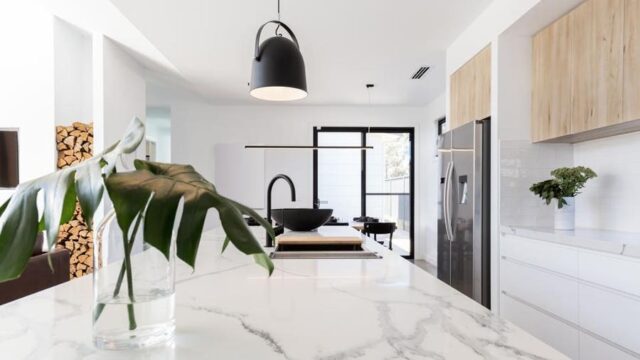
Marble is a metamorphic rock that is formed from limestone subjected to immense pressure and heat over millions of years.
The distinctive veining patterns and swirls give each marble slab a unique appearance. Marble’s timeless elegance and natural beauty has made it a much-coveted material, particularly when it comes to countertops and floors for kitchens and bathrooms.
Marble Countertop Pros
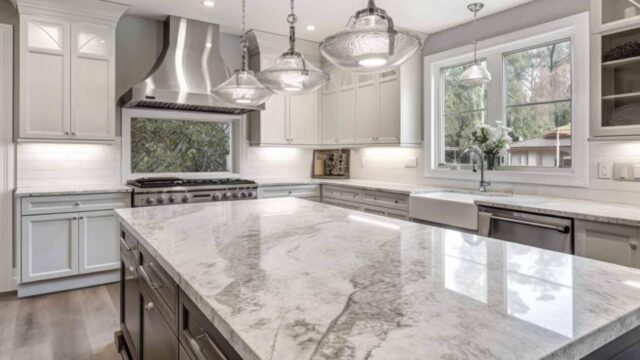
Marble has quite a few desirable qualities, which explain its popularity for home countertops. Some benefits of marble kitchen and bathroom counters are listed below.
Aesthetic Appeal
The luminous colors, intricate veining, and smooth polished finish of marble countertops provide a striking, high-end look that instantly elevates the design of a room.
The experts over at Bedrock Quartz tell us that no two slabs are exactly alike. Marble makes a stunning statement in traditional, rustic, and contemporary kitchen and bath settings.
Durability
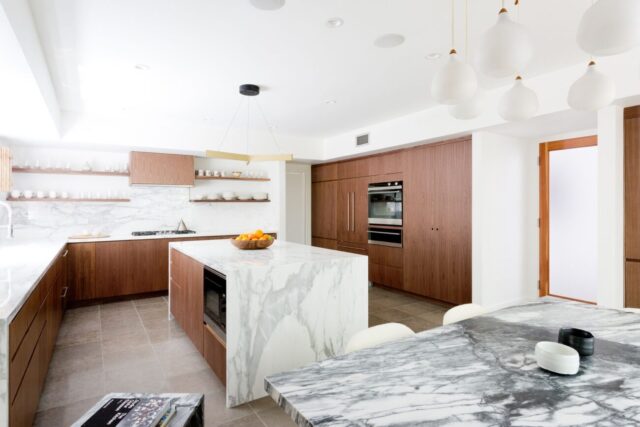
Despite its refined aesthetic, marble is actually quite durable.
Properly sealed marble countertops stand up really well to daily use, hot pots and pans, and abrasive cleaners.
Marble does not scratch or stain easily, so it will maintain its original appearance longer than many other materials (when it is cared for properly).
Low Maintenance
With regular sealing, marble countertop maintenance is fairly straightforward.
Simple cleaning (using pH-neutral products) is all that is required to keep marble counters looking perfect.
Marble does not need a protective finishing as the sealer provides water resistance. To that end, resealing every couple of years or so will maintain performance.
Adds Value
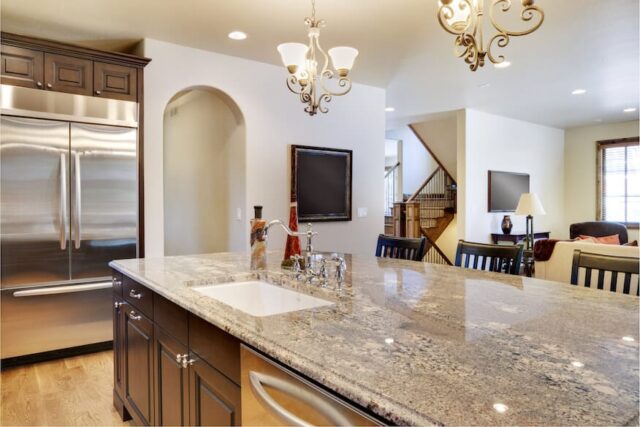
Natural stone countertops like marble increase a home’s resale value more than inexpensive materials like plastic laminate.
The perceived luxury of marble has significant appeal among home buyers. Going with marble for a bath or kitchen remodel results in a higher return on investment.
Marble Countertop Cons
There are also some potential disadvantages to marble to be aware of though. Weaknesses of marble as a countertop choice are:
Prone to Staining
Acidic liquids like wine, vinegar and citrus juice can etch and stain the vulnerable calcium carbonate composition of marble.
Different oils can also penetrate and discolor marble. While sealing helps protect the surface, spills need to be wiped up promptly before the stain has time to soak in.
Easily Chipped
-
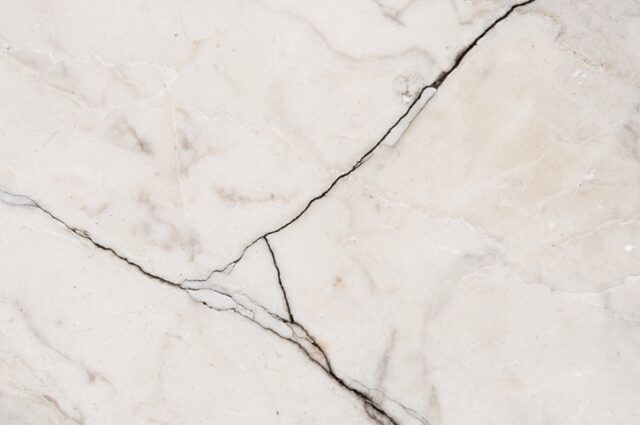
Source: justcallclassic.com
Marble is brittle and prone to chipping if subjected to hard, sudden blows.
Dropping a heavy cast-iron pan or appliance can instantly crack a marble counter. You should avoid cutting directly on marble as well, since it will degrade the surface over time.
Requires Frequent Sealing
As mentioned, to prevent staining and water damage, marble counters need thorough sealing regularly.
Liquids can quickly seep into the porous texture and cause permanent discoloration if it is not properly sealed. Not regularly applying sealant layers puts marble at risk of irreversible damage.
Environmental Impact
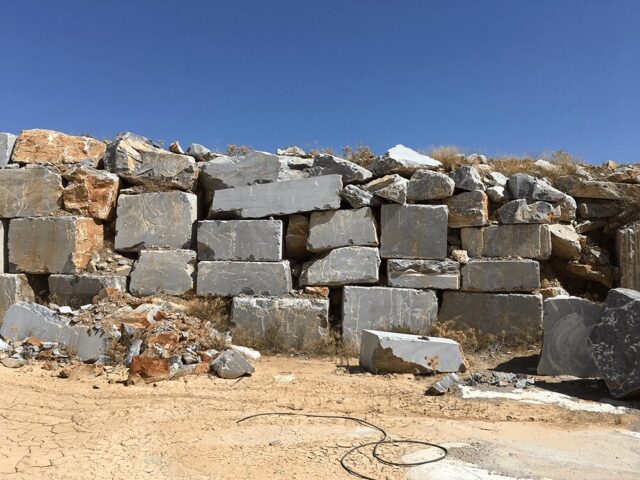
Marble is a non-renewable natural stone dug from quarries, so sourcing it has ecological consequences.
Quarrying activities generate debris, water waste, and air pollution. Manufacturing marble also requires transporting and cutting large slabs – all energy intensive processes.
Conclusion
Marble countertops undoubtedly bring elegance and luxury to any home décor with their striking aesthetics, timeless appeal, and enduring value.
However, the risk of staining, chipping, and other vulnerabilities means marble requires special care and maintenance to retain its beauty over time.
Weighing the attractive visual impact along with the need for gentle handling and routine sealing can help homeowners decide if the upkeep is worth the initial investment and ongoing diligence to responsibly care for delicate marble counters.
Ultimately, each residence has unique needs and priorities that factor into making an informed selection of countertop materials.
Being aware of both the merits and drawbacks of natural marble equips design-conscious renovators to make the choice that aligns with their lifestyle and space functionality.







